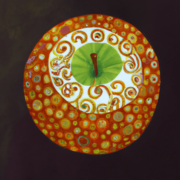How Mediterranean diet boosts your fertility
The Mediterranean diet is a fail-proof way to nourish your fertility and prepare for a healthy pregnancy. This way of eating originated in countries surrounding the Mediterranean sea (think Italy, Greece, Spain).
It is loaded with vegetables, fruits, legumes, nuts, beans, grains, fish, and unsaturated fats such as olive oil. Moreover, it usually includes a full-fat dairy and low amount of red meat.
Easy to follow
Expert consensus has identified the Mediterranean diet as the easiest to follow among healthy eating patterns.
Delicious recipes from real kitchens
Another advantage of Mediterranea cooking is that it withstood the test of time and evolved in real people’s kitchens, not in a lab.
Share meals together
Further, often ignored, the Mediterranean element is eating meals together with your social circle. This not only helps to create bonds between people, sharing meals reduces feelings of isolation and depression.
When eating with others, people are likely to have more fruits and vegetables, home-cooked meals lower the odds of becoming obese. Nutritional and social balance is the key to good health, including fertility.
Easy to adapt
When talking about the Mediterranean diet, you don’t need to cook exclusively Mediterranean dishes. You can adapt your usual recipes to fit the Mediterranean pattern.
A recent example of such a hybrid cuisine is the Nordic diet. It evolved when Scandinavians were exploring a local adaptation for a healthy eating plan. Most of the cuisines/recipes that have a good balance of whole grains, legumes, vegetables, healthy fats and lean proteins can work.
How does the Mediterranean diet help fertility?
One of the well-established benefits of the Mediterranean foods is that it improves cardiovascular health. You may wonder, what does a healthy heart and fertility have in common? You might be surprised, but heart – fertility connection is quite straightforward.
Male health specialists discovered that poor sperm quality means that heart problems might be a few years away. They see sperm quality as a biomarker for overall health. It makes sense, because, when circulation reduces in small blood vessels around reproductive organs, it’s only a matter of time when the same will spread around the heart.
Studies established that poor male fertility increases risk of developing diabetes by 30% and coronary heart disease by 48%.
Men with poor sperm quality are more likely to end up in hospital. Danish researchers discovered that men with low sperm concentration (0–5 million/mL), needed critical hospital care 7 years sooner than men with better quality sperm. The health outcomes were even worse when additionally to poor sperm count, men had low motility.
Female infertility is a risk factor for cardiovascular problems as well. Women with menstrual irregularities from the ages of 20 to 35 have a 50% increased risk of myocardial infarction or coronary heart disease in comparison with those who have healthy cycles.
Female obesity, insulin resistance, and hypothyroidism are also linked to infertility, anovulation, and heart disease. Cardiovascular risk factors are higher in young women with diminished ovarian reserve.
Women diagnosed with endometriosis and PCOS often have impaired functioning of the lining inside small blood vessels. Unfortunately, impaired microcirculation is an early step towards cardiovascular disease.
To conclude, a Mediterranean diet is good for your heart, and what is good for your heart, is good for your fertility.
Research says, this diet boosts fertility
If you want to reduce the need to visit fertility doctors, follow a Mediterranean diet. When a Spanish study compared the ‘Western’, otherwise called the ‘meat-sweet’ diet, with the Mediterranean, women fell pregnant faster and didn’t need fertility doctor’s help when eating Mediterranean dishes.
The majority of ovulation disorders may be preventable if we modify the nutrition and lifestyle to fit the Mediterranean way of eating. The study that discovered this, researchers observed 18000 nurses who ate a foods similar to the Mediterranean:
- monounsaturated fats (think olive oil),
- protein mostly from plant sources (beans, pulses),
- low glycemic carbohydrates,
- daily high-fat dairy, multivitamins,
- iron from plants (leafy greens).
One can’t imagine a Mediterranean menu without fish. And there is a good reason for this – couples who have seafood at least twice a week have 61% greater chances to conceive than couples who eat only one seafood dish per month.
As you see in this graph, when both partners have seafood twice a week, their chances to conceive increase dramatically. This confirms that both partners’ lifestyle changes can reduce the time to pregnancy.
Go for Mediterranean menu for IVF success
Mediterranean foods together with acupuncture and other lifestyle changes could be game-changers when undergoing IVF.
When undergoing IVF Mediterranean eating plan may improve oocyte quality and quantity. The same study authors found that foods like mayonnaise, junk foods and solid oils (trans fats) reduced the chances of getting pregnant with IVF.
Another Mediterranean diet study from the Netherlands observed that couples who followed the Mediterranean had a 40% higher chance to fall pregnant with IVF/ICSI.
Lastly, the Mediterranean foods is a good choice, if you are under 36 and want your IVF to be successful from the first time. That is the conclusion from the study published in Greece, the home country of Mediterranean cuisine.
Summary of Mediterranean diet fertility benefits
- Optimises ovulation
- Reduces time to pregnancy
- Helps to control weight
- Increases IVF success rates
- Improves egg quality
- Reduces inflammation
The Mediterranean could be a good base fertility eating plan. Additionally, you can explore the eating principles described below to modify the Mediterranean style recipes to suit your health.
For example, if you have PCOS you could follow a Mediterranean style recipe, AND use low GI ingredients. If you have sensitivity to gluten you can modify the recipe accordingly.
That’s the idea – there is no one fertility diet that suits all. We need to create your unique way of eating that nourishes your fertility.


